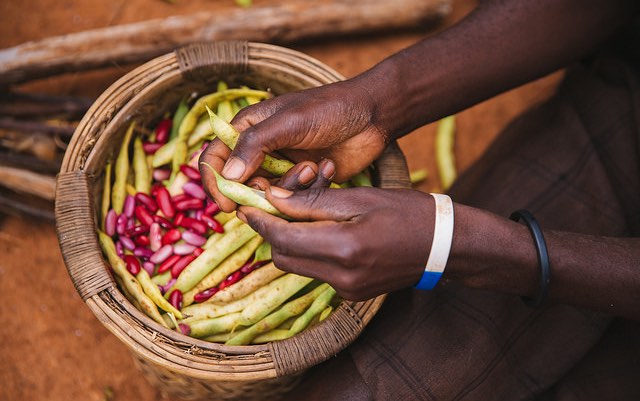Our current food systems are incredibly complex, and are experiencing multiple failures across many measures of human and planetary well-being. An estimated 815 million people remain undernourished, while overconsumption of the wrong calories is simultaneously driving rises obesity and noncommunicable diseases across much of the globe. Agriculture is one of the biggest contributors to greenhouse gas emissions, as well as deforestation and land degradation.
These failures are largely due to the predominantly narrow approaches we have been using to improve agriculture and food, which tend to focus only on a narrow set of factors of our food system (like yields or soil health), and do not account for side effects or trade-offs (like greenhouse gas emissions or fertilizer runoff), or feedback loops (like the impact pesticides have on natural pest predators), in that system.
The United Nations Environment Programme is hosting a new initiative that is pushing us to simultaneously consider the impact of every aspect of our current food systems—from food production to consumption, human health to environmental health, and everything in between —so we can comprehensively evaluate the true costs and benefits of how we are growing, processing, distributing, and consuming food. As we argue in the first major technical output of this initiative, the TEEBAgriFood Scientific and Economic Foundations’ Report, such an inclusive evaluation of our food systems will require systems thinking to capture the inputs and outputs of the entire system.
Systems thinking is an approach to problem solving that seeks to understand how the components of a system are interconnected and influence each other in ways that are greater than the sum of their parts. Taking this type of approach allows for a greater understanding of what drives change and how to improve not just pieces of the puzzle, but the entire puzzle.
Measuring progress in our food system with one-dimensional metrics like “per hectare productivity” ignores how improvements in one domain may create trade-offs or negative consequences in others, such as the various dimensions of sustainability.
The components or subsystems of our complex food systems are interconnected, intrinsically dynamic, and sensitive to different geographic areas and time frames, creating complex analytical and policy challenges.
To overcome these challenges, we need a holistic framework allowing the integration of individual pieces into a new, complete picture. Systems thinking allows better understanding and forecasting of the outcomes of policy decisions, across sectors, economic actors, and over time and in space. It can help us better predict the side effects and trade-offs, the winners and losers, as well as potential synergies that can be realized through the implementation of public policies or other behavior interventions.
Institutions working to improve our current food systems across social, human, and environmental well-being dimensions, like IFPRI, should adopt systems thinking to improve our work. Systems thinking should help drive future strategic programming, and systems approach experts should be engaged to help build the capacity of researchers to foster systems thinking in their own work.
To make these goals actionable, institutions must take concrete steps to improve collaboration across disciplines and sectors within their organization and in partnership with others.
IFPRI’s partnership in the Bridge Collaborative provides an example of what such collaboration and innovative thinking could look like. A collaboration spearheaded by The Nature Conservancy, PATH, IFPRI, and Duke University, the Bridge Collaborative brings together top thinkers in the health, development, and environment communities to mobilize a rapid progression in how we address global problems, identify solutions, share evidence and measure success. The group has put forward recommendations around six principles: to base decisions on evidence, act early, remain open to and intentionally elicit outside perspectives, and share information openly.
Taking a similar approach to understand the entirety of something as complex as our food system can seem overwhelming, but by committing to a holistic approach we can make incremental progress to tackling some of the world’s greatest challenges. The failures of our global food system won’t be solved overnight, but if we don’t strive to address the whole system, we are more likely to fail in addressing any individual piece of it.
Wei Zhang is a Research Fellow with IFPRI’s Environment and Production Technology Division and the coordinating lead author of Chapter 2 in the TEEBAgriFood Scientific and Economic Foundations Report, “Systems thinking: an approach for understanding ‘eco-agri-food systems.” This post first appeared on Thomson-Reuters Foundation News.







